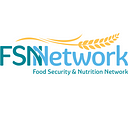Cultivating Inclusion for Transformative Change
By: Emily Teerink, Program Officer, GAYA
Lisez ce blog en français ici.
In the development and humanitarian sectors, there’s a growing awareness that achieving meaningful progress in gender and youth integration is a responsibility shared by all. It’s not solely the task of designated Gender and Youth leads; it’s a collective effort that requires everyone’s commitment. This pivotal shift in mindset is at the core of the Gender and Youth Activity (GAYA) and its transformative Cultivating Inclusion for Food Security Fellowship.
GAYA brought together 18 professionals from eight USAID Bureau for Humanitarian Assistance (BHA) funded programs across the Horn of Africa to form the first cohort of the Cultivate Fellowship. But rather than convening only gender, youth, and social inclusion leads, GAYA also invited monitoring, evaluation, and learning (MEL), as well as collaborating, learning, and adapting (CLA) leads to participate in this capacity strengthening program to foster transformative change for increased inclusion.
The fellowship aimed to transcend the traditional roles, emphasizing the importance of every participant’s involvement in gender and youth integration. Specifically, the Fellowship supports participants to design and use qualitative methods to address program-specific questions and deepen their contextual understanding of social inclusion and resilience dynamics of their activities. Fellows engage in both in-person and virtual engagements over three months to achieve this goal.
Assets- First Approach: Peer Learning in Action
The Fellowship began with a three-day workshop in Nairobi, Kenya where fellows had the opportunity to meet, establish connections with, and learn from peers from across the region. GAYA designed the workshop with an assets-first approach — recognizing the richness of experience and knowledge each Fellow had to share with their peers through collaboration and dialogue.
The interaction among colleagues during this workshop allowed Fellows to build their support network within the region as they identified research questions to answer through qualitative inquiry. Fellows identified commonalities and differences in their programs and interests, forming peer learning groups based on shared goals. Through these connections, they provided valuable feedback to one another, fostering a spirit of cooperation and support.
A Deep Dive into Resilience Thinking
For the majority of the workshop, Fellows worked to refine their research questions that they would explore for the remainder of the Fellowship. To support this, GAYA facilitated a systems mapping simulation, guiding fellows through the steps to apply resilience and social inclusion frameworks to identify gaps and assumptions they could address through qualitative inquiry. This exercise helped participants focus their research on specific populations and resilience capacities that could enhance program outcomes.
“My journey and objectives have become clearer and more specifically, smarter. When we came our objective was wide and now we have narrowed it down.” — Fellow
Diverse Areas of Inquiry
The Fellows’ identified areas of inquiry as diverse as the programs they represented. For instance, one sought to understand the challenges faced in latrine access by internally displaced women with disabilities in Somalia, while another program is exploring how promoting men’s involvement in domestic chores could impact women’s capacity to engage in productive roles in Ethiopia. Each program had unique objectives, contributing to a rich tapestry of research topics, as shown in the graphic recordings below, which highlight each of the participating programs and their areas of qualitative inquiry.
Qualitative Inquiry at Any Stage in the Program Cycle
Traditionally, many programs conducted gender and youth analyses only at the program’s inception or through the Refine and Implement year. Or for many emergency programs, social inclusion data isn’t collected at all, and teams rely on desk reviews. It is rare for programs to collect additional gender, youth, or social inclusion data throughout the program cycle because it is assumed to be a massive undertaking. The Cultivate Fellowship challenges this notion by showcasing that qualitative data collection can occur at any point in the program cycle. Further, the Fellows are demonstrating that a three-month timeframe is sufficient to deepen understanding and make meaningful changes.
“We are now going back to the drawing board with the skill sets gained to fine tune our [qualitative inquiry] and scale it to the program team to aid the implementation of the [qualitative inquiry].” -Fellow
What Comes Next?
After three days together, Fellows went back to their respective programs equipped with new connections, an expanded understanding of social inclusion and resilience frameworks, and the goal of answering their qualitative inquiry questions in ten weeks.
For the remainder of the Fellowship, Fellows met bi-weekly to reflect as a peer network on the qualitative inquiry process, shared highlights and challenges, and continuously linked back to the social inclusion and resilience frameworks that underpin the research. By the end of the Fellowship, each team will work to utilize their findings to adapt and enhance their programming.
Are you interested in joining the next cohort of Cultivate Fellows?
The second cohort of the Cultivating Inclusion Fellowship will begin in March 2024 with the application opening in December 2023. The second cohort is aimed at Gender, Youth, MEL, and CLA Leads from Bureau for Humanitarian Assistance (BHA) funded Emergency Programs and Resilience Food Security Activities (RFSAs) or other USAID-funded strategic partners located in Africa interested in participating in an English-speaking cohort. GAYA will host another cohort for French-speaking implementers in 2025.
If you are interested in receiving the application when it opens, sign up here.
Not able to participate in the Fellowship, but still interested in using qualitative inquiry for transformative change? Check out the qualKit to learn about a variety of qualitative data collection methods.
